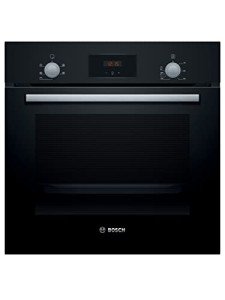Ten Kitchen With Built In Ovens That Really Change Your Life
페이지 정보

본문
The Benefits and Design Considerations of a Kitchen with a Built-In Oven
In contemporary kitchen style, built-in inbuilt ovens have actually ended up being a prominent function, offering both functionality and visual appeals that cater to modern-day lifestyles. This short article looks into the benefits of including a built-in oven into the kitchen area and highlights essential style considerations to guarantee a cohesive and useful kitchen environment.
Comprehending Built-In Ovens
Built-in ovens are designed to be effortlessly integrated into kitchen cabinetry, which differentiates them from standard freestanding ovens. These appliances come in various setups, consisting of single-wall ovens, double-wall ovens, and even microwave that share the same integrated cabinet area.
Typical Types of Built-In Ovens
| Type | Description | Suitable Use |
|---|---|---|
| Single Wall Oven | A basic oven with one compartment for baking and roasting. | Little kitchens or daily baking. |
| Double Wall Oven | Two separate builtin oven compartments enabling for simultaneous cooking. | Large families or regular bakers. |
| Combination Oven | A microwave and traditional oven in one system. | Quick meals and versatile cooking choices. |
| Steam Oven | An intergrated oven created particularly for steam cooking. | Health-focused cooking and complex recipes. |
Advantages of Built-In Ovens
The popularity of built-in ovens can be associated to numerous essential benefits, consisting of:
1. Area Efficiency
built In ovens-in ovens are created to fit within existing cabinets, freeing up valuable floor area. This function is particularly beneficial in smaller kitchen areas, where every square foot counts.
2. Streamlined Appearance
The seamless integration of a built-in oven creates a refined appearance in the kitchen. Offered in numerous surfaces, built-in ovens can match or match kitchen cabinetry, [empty] providing a contemporary and unified style visual.
3. Boosted Functionality
Built-in ovens frequently offer sophisticated features, such as wise innovation, several cooking modes, and even self-cleaning choices. This can boost cooking experiences and enhance the performance of meal preparation.
4. Improved Accessibility
With appropriate setup of a built-in oven, users can increase ease of access, preventing the need to flex over to reach a lower oven compartment. Eye-level cooking appliances allow cooks to monitor their meals easily and reduce the danger of burns from bending down to look at a baking item.
5. Energy Efficiency
Numerous contemporary built-in ovens make use of advanced cooking technology that can lead to lower energy consumption. Functions like convection cooking can reduce cooking times while guaranteeing even heating, eventually saving energy.
Design Considerations for a Kitchen with Built-In Ovens
While built-in ovens offer many benefits, careful factor to consider in the style stage is necessary to optimize their advantages and incorporate them successfully into the kitchen design. Here are some essential factors to think about:
1. Cabinet Configuration
When preparing for a built-in oven, house owners must thoroughly think about cabinet layouts and setups. Sufficient ventilation is vital for appropriate operation. It's necessary to leave enough space for airflow, which can vary depending upon the oven model.
2. Height Preference
The setup height of the oven should be identified based upon the main users. A built-in oven situated at eye level can make it easier to utilize, especially for those who regularly prepare.
3. Complementary Appliances
In a kitchen setting, built-in ovens often match other built-in appliances such as microwave ovens and warming drawers. Selecting appliances that work well together can even more improve the kitchen's design.
4. Visual Choices
Picking surfaces and colors that balance with the general kitchen design is vital. Built-in ovens are readily available in different alternatives, including stainless steel, black, and even customized cabinet completes that can vanish effortlessly into the kitchen cabinetry.
5. Budget plan Considerations
Built-in ovens can range substantially in rate, from affordable alternatives to high-end models filled with functions. It's necessary to set a sensible spending plan that enables the desired specifications without jeopardizing the overall kitchen restoration.
FAQs
1. What is the difference in between a built-in oven and a freestanding oven?
Built-in ovens are integrated into cabinets and provide a smooth look, while freestanding ovens are standalone systems that can be moved easily.
2. Do built-in ovens need expert setup?
Yes, built-in ovens normally need professional setup due to their integration with cabinets and electrical requirements.
3. Are built-in ovens more expensive than conventional ovens?
In basic, built-in ovens can be more expensive due to their setup process and advanced functions, but there are lots of options offered to fit varying budgets.
4. How do I keep a built-in oven?
Routine cleansing and upkeep, such as utilizing the self-clean function, inspecting seals, and ensuring appropriate ventilation, are necessary for maintaining a built-in oven.
5. Can built-in ovens be utilized in smaller sized kitchen areas?
Yes, built-in ovens can be useful in smaller sized cooking areas because they maximize space effectiveness and can be set up at eye level for benefit.
Incorporating a built-in oven into a kitchen design is an outstanding choice for boosting functionality and looks. By thinking about the style suggestions and benefits talked about in this article, homeowners can create a harmonious kitchen space that accommodates their cooking needs while looking stylish and stylish. Whether refurbishing an existing kitchen or designing a new one, built-in ovens supply a level of sophistication and practicality that aligns flawlessly with modern-day cooking practices.

- 이전글5 Killer Quora Answers On Car Locksmith In Northamptonshire 25.05.19
- 다음글벳12 【원벳원보증.com / 가입코드 9192】 롤배팅 25.05.19

